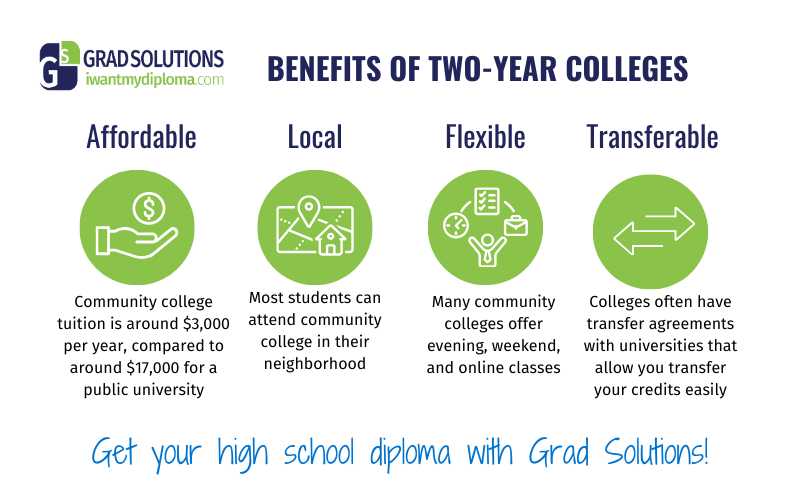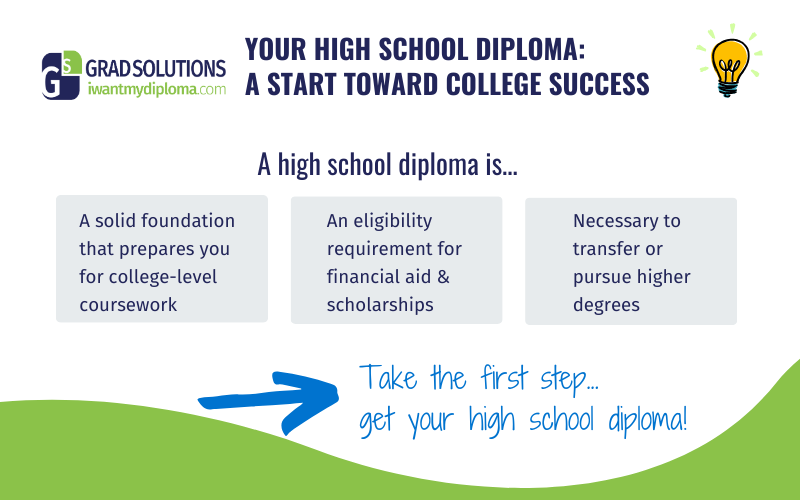Program Information
How Does Community College Work & How to Apply

Community colleges have several surprising aspects many people aren’t aware of. Two-year colleges —also called community colleges or junior colleges—provide several unique advantages. For many, community colleges offer the option to enter the workforce quickly, reduce tuition costs, provide an easy transfer to a four-year institution, and generally provide an easy transition into college life. Research from the National Student Clearinghouse showed that 4.4 million students enrolled in public two-year colleges for Spring 2024, up almost 5% from the previous year. This indicates a growing interest in community college, for good reason.
Community colleges play a crucial role in providing the education and training necessary to meet the needs of the modern workforce as the demand for skilled professionals grows. If you’re a high school student trying to figure out what comes next after high school, community college can be a valuable and accessible pathway to achieving your educational and professional goals.

Benefits of Community College
Community colleges are vital to the higher education system, offering various programs designed to meet student needs. They offer students benefits like affordability, accessibility, flexibility, and community.
Affordability
Community colleges provide an affordable and accessible option for those seeking post-secondary education, often with significantly lower tuition costs than universities. This affordability makes community colleges an attractive choice for students who want to minimize their educational expenses and avoid substantial student loan debt.
Accessibility
One of the standout benefits of community colleges is their accessibility. These institutions typically have open admissions policies, ensuring that higher education is available to non-traditional students, such as working adults, parents, and those looking to change careers. Furthermore, community colleges often have multiple campuses or offer online courses, making it easier for students to find and attend college classes that fit their schedules.
Flexible Scheduling
Community colleges also emphasize flexible scheduling, providing options for full-time, part-time, evening, and weekend classes. This flexibility benefits students in balancing their studies with work, family responsibilities, or other commitments. Additionally, many community colleges offer accelerated programs and courses that can be completed in a shorter time frame, allowing students to enter the workforce or transfer to a four-year institution more quickly.
Community-Oriented Education
Community-oriented education is another hallmark of community colleges. These institutions are deeply connected to their local communities, often tailoring their programs to meet regional workforce needs and offering resources such as career counseling, tutoring, and job placement services. This focus on community engagement ensures that students receive academic instruction and practical support to help them succeed both during their studies and in their future careers.

Programs & Degrees
Community colleges offer diverse programs and degrees tailored to meet various educational and career goals. Associate degrees, such as the Associate of Arts (AA) and Associate of Science (AS), are typically designed to be completed in two years and can serve as standalone qualifications for entering the job market or as the first step toward a bachelor’s degree.
Many community colleges also offer certificate programs, which focus on technical career skills and industry-recognized certifications and can often be completed in less time than an associate degree. These certificates are valuable for students seeking expertise in a particular field or enhancing their professional credentials.
Additionally, community colleges are crucial in facilitating transfer student pathways to four-year universities. Many have established articulation agreements with universities, ensuring that credits earned at the community college level will transfer smoothly. This pathway allows students to complete their general education requirements and introductory courses at a lower cost before moving to a university to complete their bachelor’s degree.

How to Apply to Community Colleges
Applying to a community college typically involves several straightforward steps.
- First, prospective students should research and choose a community college that aligns with their academic and career goals. Students may also consider the geographic location, entrance requirements, and tuition costs. Some schools charge less for students who live within their boundaries, some may charge a bit more for students outside of their boundaries.
- Once a school is selected, the next step is to complete an online application form through the college’s website, providing necessary personal and educational information.
- Applicants will often need to submit government-issued identification and any relevant transcripts.
- Many community colleges also require placement tests to determine appropriate course levels in Math and English.
- Students should apply for financial aid by completing the Free Application for Federal Student Aid (FAFSA) to determine eligibility for federal grants, loans, and scholarships.
Community college admissions offices are typically available throughout the process to assist with any questions or additional requirements.

High School Diploma for Success in Community College
Success in community college begins with a solid foundation, often including obtaining a high school diploma. This credential is a prerequisite for admission to most community colleges and signifies that a student is prepared for the rigors of college-level coursework. High school graduates are typically better equipped with the essential skills in reading, writing, and mathematics, which are crucial for succeeding in the more advanced and specialized college-level courses.
Financial aid eligibility is another critical aspect of community college success, and a high school diploma plays a vital role in this process. Students who have completed high school can apply for federal financial aid, including grants, loans, and work-study programs, which can significantly offset the costs of tuition, books, and other educational expenses. Access to financial aid can make a substantial difference in a student’s ability to attend college full-time and focus on their studies without the added stress of financial burdens.
In addition to the immediate benefits of community college, obtaining a high school diploma is essential for those who plan to transfer to a four-year institution or pursue higher-level degrees. Many community colleges have established transfer agreements with universities, allowing students to transfer credits earned during their associate degree programs. However, these transfer opportunities often require students to meet specific academic standards and prerequisites, including a high school diploma.
Successfully transferring from a community college to a four-year institution can pave the way for students to complete a bachelor’s degree, gain advanced knowledge in their chosen field, and enhance their career prospects. By laying the groundwork with a high school diploma, students set themselves up for long-term educational and professional success.

Grad Solutions Helps You Attend Community College
For those who had to leave high school before earning their diploma, Grad Solutions offers a unique opportunity to complete their education at their own pace. This fully remote program is designed to be flexible, allowing students to balance their studies with a full-time job or other commitments.
Grad Solutions provides a supportive pathway to help students prepare for community college, ensuring they have the foundational skills and credentials to succeed in higher education. Students can study from anywhere and at any time, so they can tailor their learning experience to fit their individual schedules and life demands.
Grad Solutions goes beyond just helping students earn their high school diplomas. The program offers comprehensive support services, including Next Steps college counselors and academic advisors who assist with selecting a college, applying for financial aid, and organizing the necessary documents for the college admission application process.
Grad Solutions provides student support from mentoring, tutoring, career planning, and counseling to ensure students are well-prepared for their next educational journey. These valuable resources equip Grad Solutions students with the tools they need to transition smoothly into community college and beyond.
If you’re ready to take the next step towards achieving your educational and career goals, contact us or enroll at Grad Solutions today.